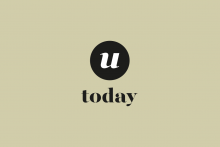A new name. A chairman, a treasurer, a secretary and a PR-officer. A budget. A website under construction. Twenty enthusiastic volunteers. The first version of a policy plan and a kick-off get-together planned after the summer holiday. The resurrection of TAB has been realized.
The first board members of the newborn P-NUT are working hard to create a new organization. An organization that will take root, or so they hope, because for the past few years TAB had only one board member. `By the time he got his PhD, there was no one left to take over,' explain Chairman Jeroen Kraaijenbrink and PR-officer Tineke Lantink, both doctoral students at the faculty of Business & Technology.
Several doctoral students decided to revive the organization; they mobilized colleagues and chose a new board. `There are already about twenty doctoral students active,' Lantink says. `One of the first things we did is select a new name. This was necessary because the term AIO officially no longer exists. Since 2003, AIOs are considered normal staff and are called doctoral students. As an added benefit, P-NUT can also be translated into English.' Kraaijenbrink: `I think it is very important that doctoral students have their own platform. As a doctoral student, you do most of your work on your own, so it can be useful to have a network. Also, while we are formally regular employees of the university, our position is still a special one. You're in training, which is different. For example, you are dependent on your supervisor.' Lantink: `P-NUT can act as a sounding board. For example, if you have problems with your supervisor, within our group you might find people with the same issues who can offer constructive solutions.'
P-NUT will also continue the negotiations with the Executive Board about the reduced facilities package. Kraaijenbrink: `Provisions like the budget funds for career development have been scrapped, but nothing has been added to replace them. That is difficult because doctoral students are often required to do external courses. You cannot pay those out of your own pocket, but the money will have to come from somewhere. We try to solve these problems together with the Personnel Department and the Executive Board.' Lantink: `There are also many differences between the various faculties. We want to chart those.' Kraaijenbrink: `It would be nice if we could at least write up some minimal requirements that all faculties will have to fulfill.'
Lantink: `Our first priority is announcing our return. We want to keep our website up to date and give a lot of information. In September we'll be organizing a kick-off event to introduce ourselves. We are very curious about the reaction from the UT community.'
Trans. Jeroen Latour







